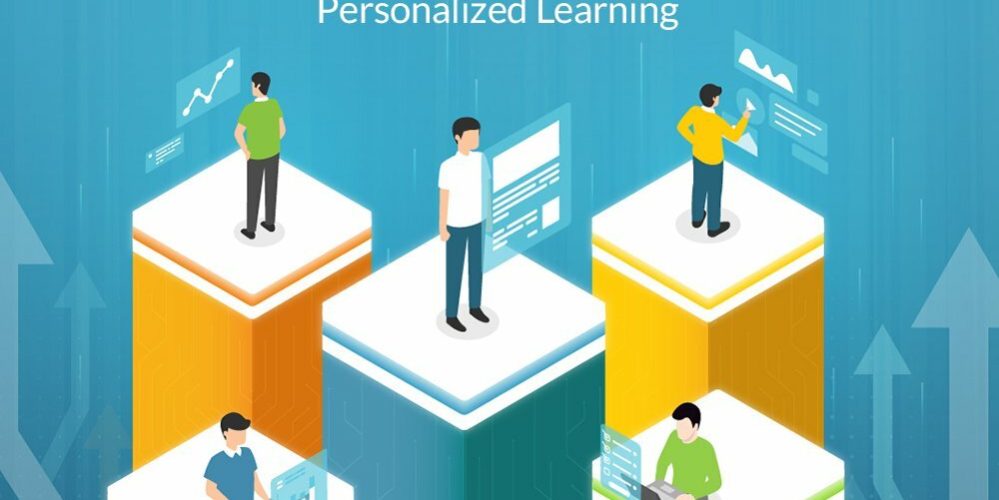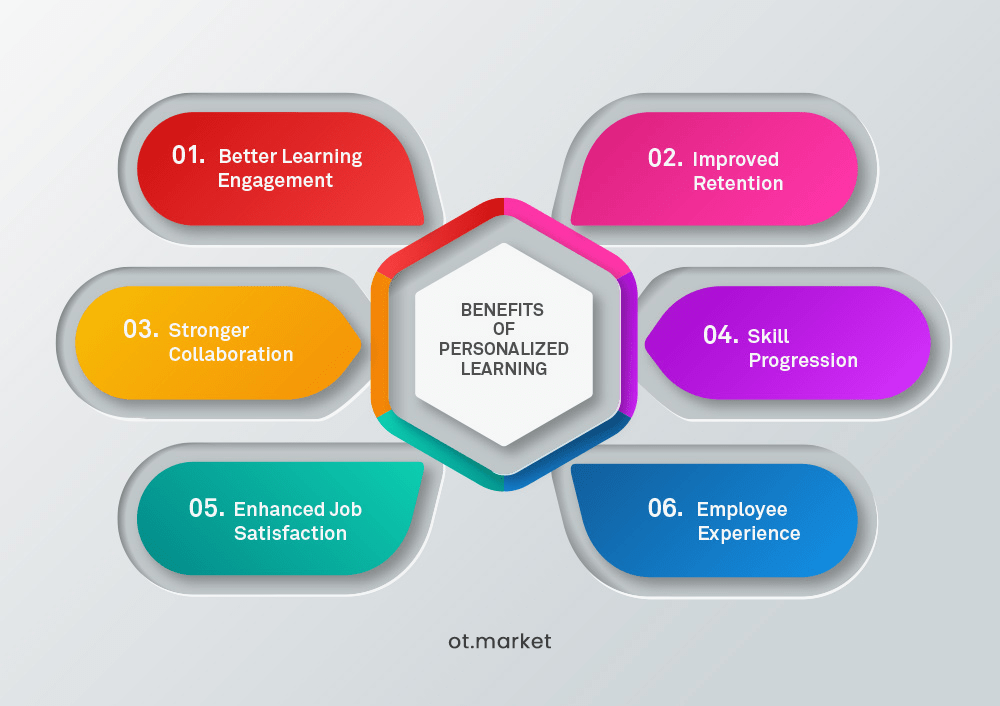Blog
How Personalized Learning Can Boost Employee Engagement and Performance
- September 20, 2022
- Posted by: Jignyasa Bal
- Category: Blogs

A workforce that is engaged increases profit by 21%. They are also 17% more productive than a disengaged workforce.
Employee engagement is essential for a successful business. It’s a measure of how happy, satisfied, and productive employees are. It has a positive impact on everything from productivity to customer satisfaction. Yet, achieving high levels of employee engagement is no easy task. It takes a lot of hard work and commitment on the part of the company’s leadership. And it also takes a lot of investment in employee upskilling.
In this article, we’ll explore the importance of personalized learning in employee upskilling for employee engagement.
What is personalized learning content?
In the traditional training method, learners go through the same material in the same format. Time has proved that this method does not work.
74% of customers get frustrated when they receive irrelevant information. They feel positive about a company if the messages align with their interests. Personalized emails see 29% higher open rates. One new manager might be having difficulties leading their team, while another might be facing trouble with communication. Thus, the training requirements for both managers are different. Going through the cookie-cutter training programs won’t help these new managers with differing needs. 94% of businesses now agree that personalization is pivotal to employee learning.
Personalization starts with skill gap identification and knowledge mapping. Then the learning program is created to reach their individual learning goals.
Personalized learning provides employees with content that’s relevant to them. It helps them solve their specific learning needs. This content can take the form of videos, interactive learning modules, or even hands-on activities.
Why Personalized Learning is Essential for Employee Engagement?
To understand the potential impact of personalized learning, we have to know the factors that impact engagement. When employees feel engaged, they’re more likely to be enthusiastic about their work and more likely to be productive. Engaged employees are also less likely to have work-related feel stress. Less stress means better health, relationships, and career satisfaction.
Employees remain engaged with the company when they feel valued and are satisfied with their job. Meaningful and purpose-driven work brings the most job satisfaction. And to do meaningful work, employees must know the work well. They must have the learning, the skill sets, and the right tools to do their work. Here comes the role of personalized learning. Personalized learning enables employees to understand their job, use the tools, and achieve their job goals.
The Benefits of Personalized Learning
Personalized learning promises to help businesses in a lot of things. Be it boosting engagement and productivity, improving retention, strengthening collaboration, optimizing employee skills, or increased job satisfaction, and more.
But is all of this true? And what exactly is the process behind personalized learning? Let’s take a closer look.

Better Learning Engagement – As content is created specifically for each person, they can learn the concepts at their own pace. If a particular concept is difficult, they can slow down and comprehend it before moving on to the next. Thus building better understanding and increased learning engagement.
Improved Retention – With personalized learning content, retention rates increase. Employees are more likely to finish training modules and assessments because they’re more engaged. And because they’re more interested and engaged, they also develop a deeper understanding of the material, which leads to better retention.
Stronger Collaboration – Personalized learning content provides the opportunity for peer-to-peer learning. You can curate programs with team activities and collaboration as one of the primary goals. This will result in team bonding and organizational belongingness.
Skill Progression – The learning content is designed based on employees’ current proficiency, interests, desired proficiency levels, and aspiration. Thus, it improves specific skills and progression.
Enhanced Job Satisfaction – Personalized content is designed to make employees feel valued. This can have a significant impact on job satisfaction. When employees are happy with their jobs, they’re more likely to be motivated and make positive contributions to the organization.
Employee Experience – Every individual learns differently. By creating learning content that meets the needs of each employee, you show them that you value them. You care for their development at a personal level. This culture of empathy enhances employee experience.
Instead of for-the-sake training programs, personalized learning creates a learning culture in the organization. It fosters the growth of all the employees and the business.
But, here comes the greatest challenge. How do you create personalized learning programs? Let’s explore the best processes.
